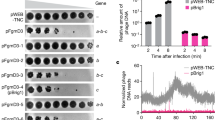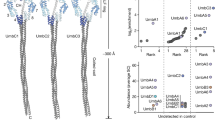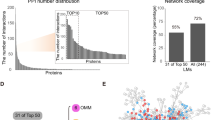Abstract
IN our work on the properties of inorganic pyrophosphatase in the boll weevil, Anthonomus grandis Boheman1, we used the enzyme present both in whole homogenates and in an acetone powder. We have since attempted electrophoresis of the enzyme to determine whether activity was present in one or more resolvable components.
This is a preview of subscription content, access via your institution
Access options
Subscribe to this journal
Receive 51 print issues and online access
$199.00 per year
only $3.90 per issue
Buy this article
- Purchase on Springer Link
- Instant access to full article PDF
Prices may be subject to local taxes which are calculated during checkout
Similar content being viewed by others
References
Lambremont, E. N., and Schrader, R. M., J. Insect Physiol., 10, 37 (1964).
Rockstein, M., and Herron, P. W., Analyt. Chem., 23, 1500 (1951).
Bamann, E., and Gall, H., Biochem. Z., 293, 1 (1937).
Norberg, B., Acta. Chem. Scand., 4, 601 (1950).
Author information
Authors and Affiliations
Rights and permissions
About this article
Cite this article
LAMBREMONT, E., SCHRADER, R. Electrophoresis of an Insect Inorganic Pyrophosphatase. Nature 204, 883–884 (1964). https://doi.org/10.1038/204883b0
Issue Date:
DOI: https://doi.org/10.1038/204883b0
Comments
By submitting a comment you agree to abide by our Terms and Community Guidelines. If you find something abusive or that does not comply with our terms or guidelines please flag it as inappropriate.



